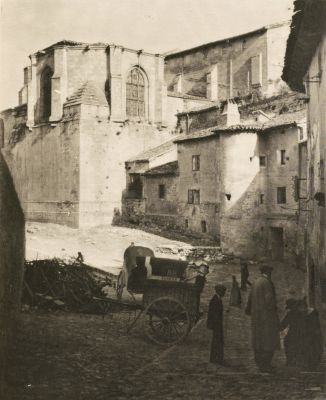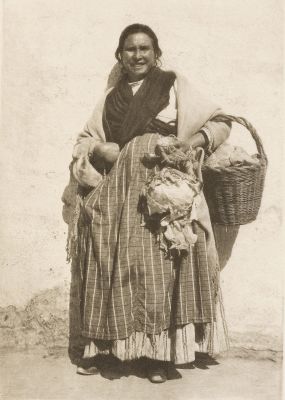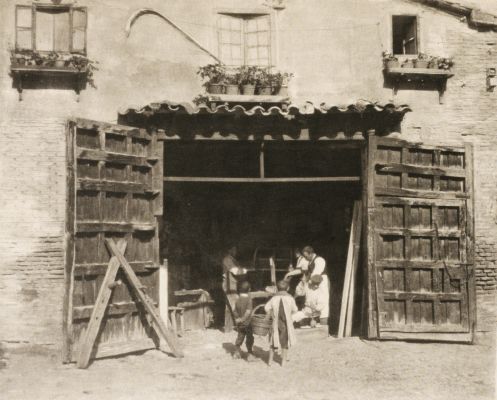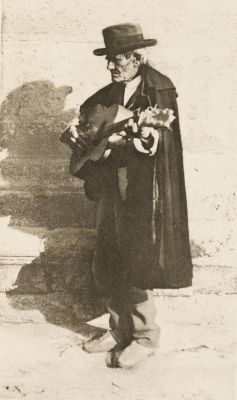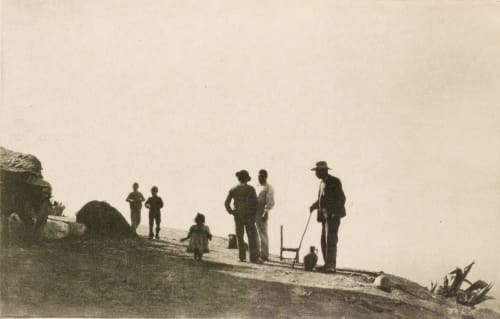
Title
Group on a Hill Road – GranandaArtist
Annan, James Craig (Scottish, 1864-1946)Key FigurePublication
Camera Work XLVDate
1914Process
PhotogravureAtelier
T. & R. Annan & SonsImage Size
11.5 x 18.1 cm
In 1913, Annan traveled to Spain, accompanied by the painter and etcher, William Strang. Working side by side, Annan created the Spanish Series. In this series Annan retains his early love of subject in motion as well as reverts to posed portraiture of local types, showing concern for costume, coiffure and body ornament. The most distinctive feature of the series is Annan’s willingness to violate the integrity of the full negative as many appear to have been trimmed after exposure. Annan’s visual concerns were for light, shadow and motion more than the picturesque relics of Spain. The pride Annan took in his photogravures is reflected in the fact that he signed almost all from this series suggesting their specialty despite their multiplicity. [1]
Although the series was never published, eight images were included by Stieglitz in one of the last issues of Camera Work . The issue was entirely devoted to Annan’s work in Spain. Stieglitz comments Annan has never done any finer work. His work is always a delight. It is so straightforward. As an artist he continues to grow. The photogravures are by himself. They too demonstrate a decided growth in this line of work in which Annan has for years been a master. [2]
Reproduced / Exhibited
Buchanan, William, and J C. Annan. The Art of the Photographer: J. Craig Annan, 1864-1946. Edinburgh: National Galleries of Scotland, 1992. plate 45.
Naef, Weston J. The Collection of Alfred Stieglitz: Fifty Pioneers of Modern Photography. New York: Viking Press, 1978. no 45.
References
[1] Naef, Weston J. The Collection of Alfred Stieglitz: Fifty Pioneers of Modern Photography. New York: Viking Press, 1978.p. 266
[2] Camera Work XLV
Haworth-Booth, Mark. The Golden Age of British Photography 1839-1900: Photographs from the Victoria and Albert Museum, London with Selections from the Philadelphia Museum of Art, Royal Archives Windsor Castle. Millerton (NY: Aperture, 1984. p. 173

